Explore the best practices‚ regulations‚ and prime locations for waterfowl hunting in Michigan. Discover seasonal variations‚ essential gear‚ and safety tips to ensure a successful and ethical hunting experience in Michigan’s diverse habitats.
Michigan offers some of the most diverse and rewarding waterfowl hunting opportunities in the United States. With its vast wetlands‚ marshes‚ and coastal areas along the Great Lakes‚ the state attracts a wide variety of waterfowl species‚ including ducks‚ geese‚ and mergansers. Waterfowl hunting in Michigan is not only a popular recreational activity but also plays a crucial role in wildlife conservation and population management.
The state’s unique geography‚ with its mix of freshwater habitats and migratory flyways‚ makes it a key stopover for waterfowl during their seasonal migrations. Hunters from across the country flock to Michigan to experience the thrill of pursuing these birds in pristine natural environments. Whether you’re a seasoned hunter or a newcomer to the sport‚ Michigan provides ample opportunities to connect with nature and test your skills.
The Michigan Department of Natural Resources (DNR) works tirelessly to ensure sustainable hunting practices‚ balancing the needs of hunters with the conservation of waterfowl populations. By adhering to regulations and embracing ethical hunting practices‚ hunters can contribute to the preservation of Michigan’s rich waterfowl heritage for future generations.
Understanding Michigan Waterfowl Hunting Regulations
Michigan waterfowl hunting is governed by a set of regulations designed to ensure sustainable hunting practices and conservation of bird populations. The Michigan Department of Natural Resources (DNR) oversees these rules‚ which include licensing requirements‚ bag limits‚ and season dates. Hunters must obtain the appropriate licenses‚ such as the base hunting license and a waterfowl hunting license‚ before heading into the field.
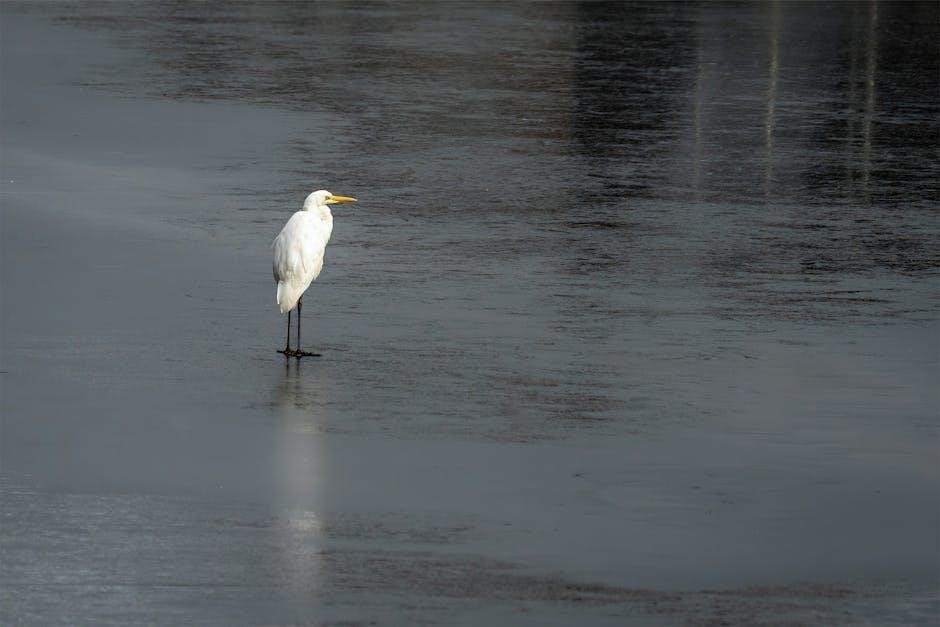
Bag limits vary by species and are set to maintain healthy population levels. For example‚ the daily limit for ducks is typically six birds‚ with specific restrictions on certain species like canvasbacks and redheads. Season dates are also species-specific‚ with distinct periods for ducks‚ geese‚ and other waterfowl. Hunters are encouraged to consult the official DNR publications or online resources for the most up-to-date information.
Additionally‚ ethical hunting practices are strongly emphasized. Hunters must avoid shooting waterfowl on the water unless it is legally permissible‚ and they are encouraged to make clean‚ humane kills. The DNR also provides guidelines on habitat respect and the importance of avoiding overhunting to ensure the long-term sustainability of Michigan’s waterfowl populations.
Understanding and adhering to these regulations is crucial for a legal and responsible hunting experience in Michigan.
Best Locations for Waterfowl Hunting in Michigan
Michigan offers prime waterfowl hunting spots‚ including Saginaw Bay‚ Lake Erie marshes‚ and the Upper Peninsula’s wetlands. These areas provide abundant bird life and ideal habitats for a successful hunting experience.
Seasonal Variations in Waterfowl Hunting
Michigan’s waterfowl hunting seasons vary significantly throughout the year‚ with distinct periods offering unique opportunities. Early-season hunting typically begins in September‚ targeting species like wood ducks and teal in marshy areas. As winter approaches‚ migratory birds such as mallards and geese become more prevalent‚ often concentrated in wetlands and agricultural fields. Late-season hunting focuses on hardy species like snow geese and late-migrating ducks. Hunters must adapt their strategies to match seasonal bird behavior‚ as waterfowl patterns shift with weather and habitat changes. The Michigan DNR sets specific dates for each species‚ ensuring sustainable hunting practices. Understanding these seasonal variations is crucial for a successful hunt‚ as regulations‚ bag limits‚ and permit requirements may change. Staying informed about season dates and adapting techniques to match the time of year will enhance your waterfowl hunting experience in Michigan.
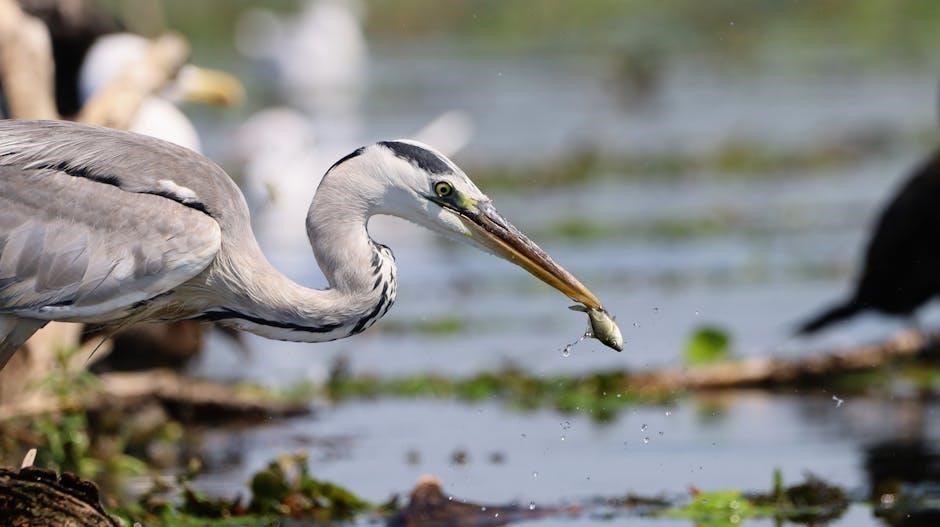
Hunting Strategies and Techniques
Effective waterfowl hunting in Michigan requires strategic techniques like decoy placement‚ realistic calling‚ and proper camouflage. Positioning in blinds or natural cover enhances success. Timing hunts during peak migration periods and understanding bird behavior increases chances of a bountiful harvest.
Essential Gear and Equipment for Waterfowl Hunting
Having the right gear is crucial for a successful waterfowl hunting experience in Michigan. A reliable shotgun‚ preferably a 12-gauge‚ is the primary tool‚ paired with steel or non-toxic shot shells. Decoys‚ including species-specific models‚ are vital for attracting birds. Blinds or natural cover‚ such as marsh grass‚ help hunters remain concealed. Waders or a sturdy boat are essential for navigating wetlands and waterways.
Clothing should be waterproof‚ camouflaged‚ and layered for cold mornings. A good pair of binoculars aids in spotting distant flocks‚ while calls‚ like duck and goose calls‚ mimic realistic sounds to lure birds.
Additional gear includes a hunting license‚ bag limits‚ and a game bag. A first-aid kit and flashlight are practical for emergencies. Using aerial maps or GPS devices helps locate prime hunting spots.
Lastly‚ ensure all equipment meets Michigan’s hunting regulations‚ such as proper ammunition types and decoy limits. Properly maintained gear enhances both safety and efficiency in the field.
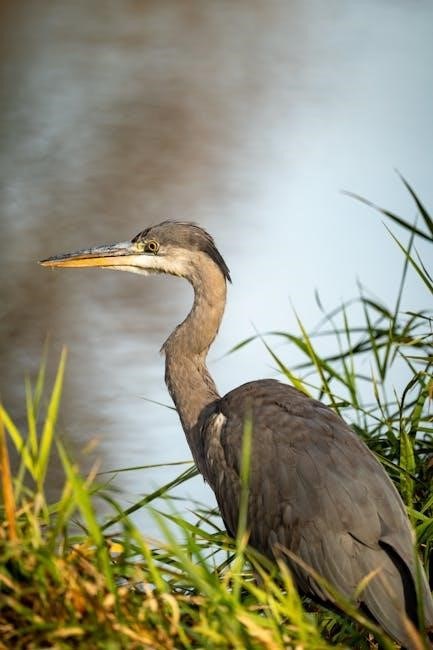
Habitat and Bird Behavior
Michigan’s diverse wetlands‚ marshes‚ and shorelines provide ideal habitats for waterfowl. Understanding bird behavior‚ such as feeding patterns and migration timing‚ is key to successful hunting. Birds often gather in shallow waters with abundant vegetation‚ making these areas prime hunting spots.
Safety Guidelines and Best Practices
Ensuring safety is paramount for a successful waterfowl hunting experience in Michigan. Always wear a properly fitted life jacket when on the water‚ as accidents can happen unexpectedly. Hunters should also be aware of their surroundings‚ including other hunters and wildlife‚ to avoid collisions or accidental shootings.
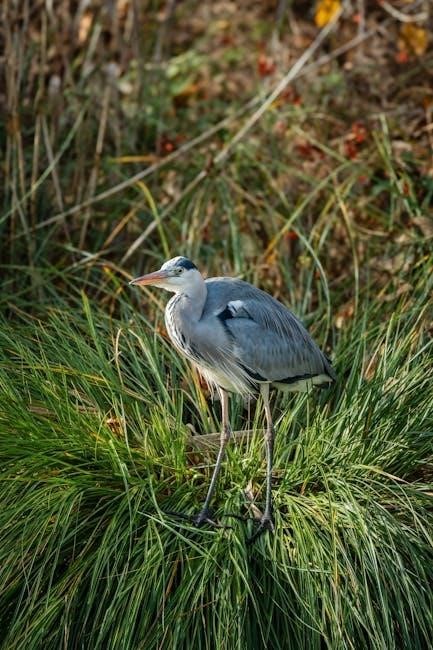
Following ethical hunting practices is crucial. Avoid shooting waterfowl on the water‚ as it raises moral concerns and can lead to wounding birds. Instead‚ wait for birds to take flight‚ ensuring cleaner‚ more humane kills. Properly handling and caring for harvested game is also essential to maintain quality and prevent waste.
Additionally‚ hunters must adhere to all legal requirements‚ such as obtaining necessary permits and respecting private property rights. Always consult with local game wardens or guides to stay informed about specific regulations and safety tips tailored to your hunting location.
By prioritizing safety‚ ethical practices‚ and legal compliance‚ hunters can enjoy a rewarding and responsible waterfowl hunting experience in Michigan’s diverse landscapes.
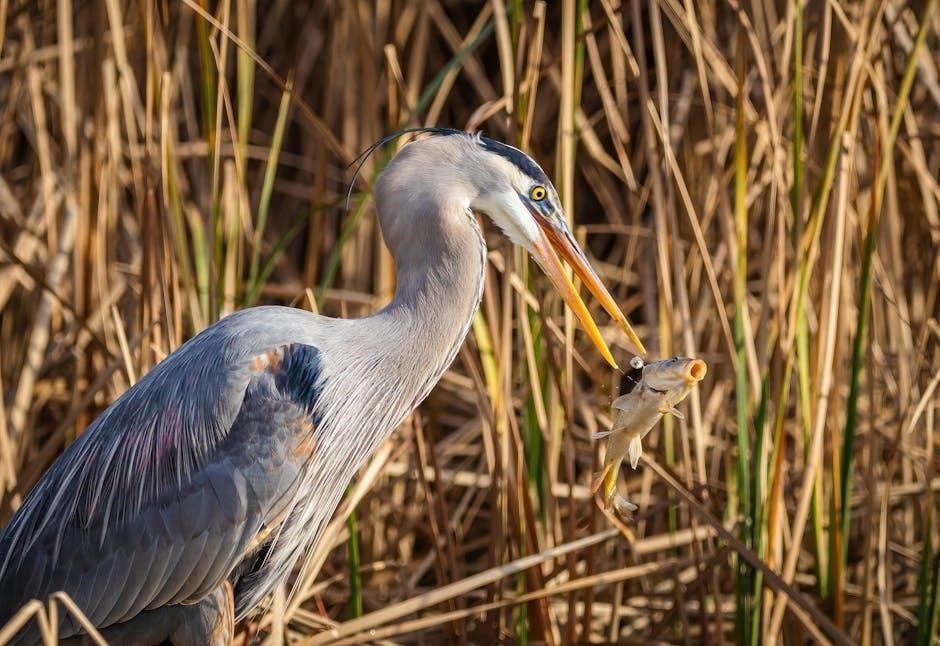
Leave a Reply